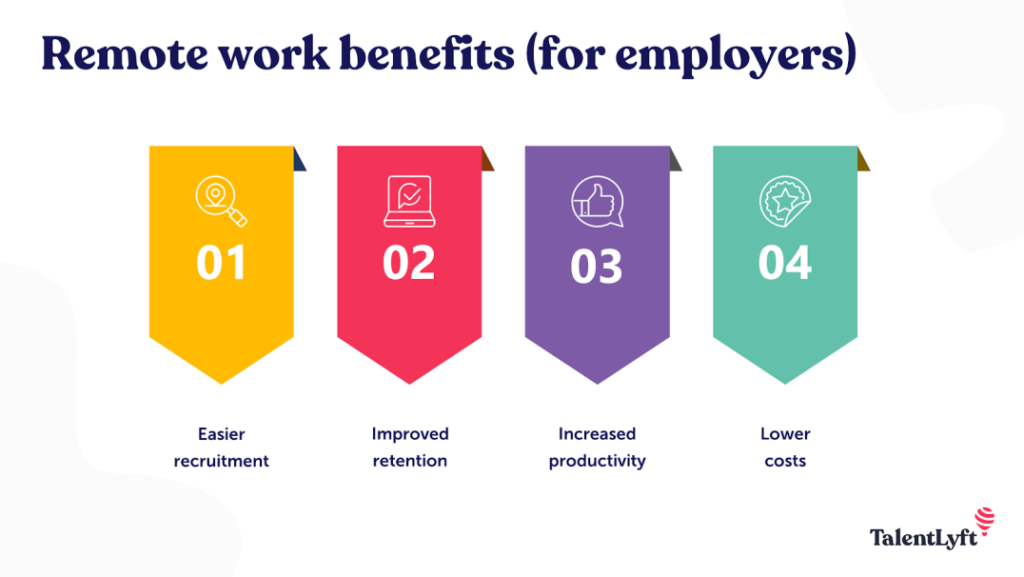
When COVID-19 hit back in 2020 it was a big shock. We were sent straight home to be locked down! Those were really stressful times, but the silver lining is we discovered the array of benefits of the work from our homes, such as improved productivity and reduced stress levels.
However, now with the pandemic in its last stages (hopefully!), many people are being sent back to their offices, much to their disdain. If you are one of those who still want to work from home, but are hesitant to ask your boss for it, don’t worry – we’re here to help!

The Rise of the Work from Home
We could think working from is a new trend, but it actually isn’t. Back in the day, carpenters, blacksmiths, and other artisans often worked from their homes, right? Yet, the Industrial Revolution created a shift where people had to leave their homes to work in factories. And since then, the workplace has been mainly office-based.
However, with the technological advances we’ve seen in recent decades – think internet, laptops, and smartphones – remote work has become a possibility for many people across different professions.
In fact, remote work has been on the rise even before COVID-19 hit. A study by Global Workplace Analytics found that remote work grew by 140% from 2005 to 2019, and that trend is only increasing. It’s no wonder that when the pandemic started, so many people were able to quickly adapt to remote work.

Thus, the COVID-19 pandemic has only reinforced the remote work trend, with many companies now offering permanent remote positions or hybrid models that include both remote and in-office days. And now that we’ve seen how well it can work, there’s no going back!
Yet, we are not here to talk about companies that have already established working from home as rule, but au contraire, to focus on those companies that don’t have a remote work policy. If your business is back to a physical workplace, or you are an eager employee wanting to stay at home, stay tuned!
The Benefits of the Work from Home
If you’re like most people, you probably spend a good chunk of your day commuting to and from work. And while some people don’t mind it, for many, the commute is nothing but a waste of time and money.
In fact, the average American worker spends 26 minutes commuting each day, which adds up to about 200 hours – or almost a whole work month! – per year. This sounds like a lot of “5 more minutes of sleep” wasted on the road, which ultimately can result in lost potential.

As well, not only is the commute time-consuming, but it’s also expensive. The average American worker spends $28 on their commute each week, which adds up to about $144 per month, or $1728 per year!
Of course, there are other costs associated with commuting, such as car maintenance and gas. And let’s not forget about the environmental cost of all those cars on the road! This can lead us to ask: Why we were commuting in the first place?
If you are an employer, when you allow your employee to work from home, you get:

Easier Recruitment
Of course, you want to tap into a larger pool of talent, and remote work can help you do just that!
As more and more companies move towards remote work, it’s becoming easier to recruit top talent from around the world. In the past, companies were limited to hiring workers who lived in close proximity to their offices.
In today’s competitive marketplace, the work from home is a major recruiting advantage
But with remote work, there are no geographic limitations. You can now hire the best workers regardless of where they live. This is especially beneficial if you run a small business or a startup and you may not have the budget to relocate top candidates.
Remote work also allows companies to tap into a larger pool of workers, which can lead to increased productivity
and creativity.
Improved Employee Retention
In addition to making it easier to recruit top talent, remote work can also help improve retention rates.
A study by Gallup found that “54% of office workers say they’d leave their job for one that offers flexible work time.”

There are several reasons for this. First, in remote work, employees have more control over their work-life balance. This often leads to increased job satisfaction and a decrease in stress levels.
As well, remote workers often have more flexible schedules, which can lead to better work-life balance. And finally, remote work can help employees avoid the dreadful commute we already mentioned.
Get more out of your business
Get the best employee engagement content every week via mailing list
Increased Productivity
This may come as a surprise, but remote work can actually lead to increased productivity!
At a first glance, it may seem like working from home would lead to more distractions and less work getting done. But in reality, remote workers are often more productive than their office-based counterparts.
According to a two-year survey by Great Place to Work® of more than 800,000 employees at Fortune 500 companies, most employees who started working from home reported unchanged or even higher productivity levels. Just look at the drastic productivity peak in the graph down below!

Lower Costs
Well, it turns out that remote work can actually save companies money!
According to a report by Global Workplace Analytics, businesses can save up to $11,000 per half-time remote worker per year. How? Increased productivity, lower real estate expenditures, lower absenteeism and turnover, and enhanced catastrophe readiness are the key savings.
On the other hand, it can save on office space and associated costs such as rent, utilities, and furniture. In sum, remote work is a win-win for both employer and employee as it can lead to increased productivity and satisfaction while also reducing costs.
If you’re an employer, we hope this has given you something to think about. And if you’re an employee, we hope this has inspired you to set your doubts aside and push the “let me work from home, please” button!
How to Ask Your Boss to Let You Work from Home: Tips and Tactics
We get it! We wish it could be that easy as to push a button, otherwise, we wouldn’t be writing this blog post, right? Yet, it’s not rocket science either! You just need a strategy.
Here are a few tips and tactics:
Do Your Research
Before you make your case, it’s important to do your research. You need to be able to show your boss that remote work is not only possible but also beneficial for both you and the company.
Some points you may want to consider include:
- The company’s remote work policy (if any)
- The company’s culture
- Your job role and responsibilities
- The impact of remote work on your team (if any)
IMPORTANT: If your company doesn’t have a remote work policy, don’t fret! You can still ask your boss to let you work from home.
Explain the benefits of remote work, both for you and the company. You may also want to look into working with a remote-work consultant, who can help advise your company on how to implement a remote work policy.
Once you’ve done your research, you’ll be able to make a strong case for why remote work would work in your specific situation.
Talk To Your Boss
Once you’ve done your research, it’s time to have a conversation with your boss.
- Start by expressing your interest in remote work and explain why you think it would be beneficial for both you and the company.
- Be sure to emphasize how remote work would allow you to be more productive and why that would benefit the company.
- Be sure to back up your points with data from your research.
- You may also want to offer some suggestions on how the company could make remote work possible for you.
If they’re not ready to commit right away, that’s okay! You can follow up after a week or two to see if they’ve had a chance to think about it more.
Create a Plan to Work from Home
If your boss is open to the idea of you working from home, create a plan that outlines how you will make remote work for both you and the company.
Include a schedule of when you will be working, what tasks you will be working on, and how you will stay in communication with your boss and teammates.
The goal is to create a plan that is realistic and achievable
- Start by outlining your goals and objectives for working remotely.
- Be sure to include a timeline for when you hope to achieve these goals.
- Develop a strategy for making remote work possible.
- Your plan should address any concerns your boss may have about remote work, such as productivity or communication.
- Again, be sure to back up your points with data and research.
- If your boss has any questions or concerns about remote work (e.g., productivity, communication, etc.), be sure to address them directly.
Don’t miss these three fundamental bullet points when creating your plan!

Be Prepared to Compromise
In some cases, your boss may be open to the idea of you working remotely part-time or on a trial basis. Be prepared to compromise and work out a plan that is mutually beneficial for both you and your employer.
Don’t take this as an all-or-nothing proposition!
If your boss is hesitant about letting you work from home, be prepared to compromise on certain aspects, such as only being able to work from home two days a week or having set office hours.
Remember that working from home doesn’t mean that you get to set your own hours or take days off whenever you want – remote work still requires dedication and discipline.
Offer a Trial Period
As we stated before, if your boss is still hesitant about remote work, offer to do a trial period. This way, both you and your boss can see how remote work would work in practice.
- Start by proposing a trial period of two weeks or one month.
- During this time, be sure to stick to your remote work plan and schedule.
- Be available to your boss and teammates during set office hours and be sure to complete all of your tasks and projects on time.
- At the end of the trial period, sit down with your boss and discuss how remote work went.
Have a Backup Plan
If you’ve done your research, created a remote work plan, and are still being met with resistance, it may be time to consider other options.
If remote work is absolutely essential for you, you may need to look for a new job that is more conducive to remote work. There are many companies out there that are fully remote or have remote-friendly policies.
Don’t be afraid to put your needs first and advocate for yourself!
We hope these tips and tactics have been helpful as remote work can be a great way to increase productivity and work-life balance. However, it’s important to remember that remote work is not for everyone.
If you’re having difficulty making remote work for you, don’t be afraid to speak up and ask for what you need.
Work from Home: Best Practices
Nevertheless, if you’re able to successfully convince your boss to let you work from home (congrats!!!) There are a few best practices you should keep in mind:
- Establish clear boundaries. It’s important to establish clear boundaries between your work life and personal life when working from home. This means setting specific office hours, creating a dedicated workspace, and limiting distractions.
- Over-communicate. One of the challenges of remote work is communication – it can be difficult to stay in touch with remote coworkers and managers. To overcome this, make sure to over-communicate (e.g., via email, chat, video conference, etc.)
- Be flexible. Just because you’re working from home doesn’t mean that you have complete control over your schedule. You may still need to be available during specific hours or for last-minute meetings.
- Stay disciplined. Working from home can be tempting to slack off, but it’s important to stay disciplined and focused on your work. This means setting a daily routine, staying organized, and avoiding distractions.

Final Considerations
As remote work becomes more and more prevalent, it’s still important to have a strategy when asking your boss for permission to work from home while keeping your needs in mind!
By doing your research, being prepared, and offering to compromise, you increase the chances of your request being approved! Believe us, you will be one step closer to being able to work from the comfort of your own home.
Good luck!


